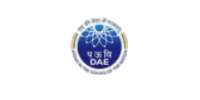[go-night-pro-shortcode margin=10 type=13 size=80 inactivebg=white activebg=#000 inactivecolor=#000000 activecolor=White]
The Ph. D. Programme In Mathematics At Hri Consists Of A Rigorous Course Work And Projects In The First Two Semesters, Followed By Research Work Leading To A Ph.D. Degree. The Students Are Taught Basic As Well As Advanced Courses In Mathematics During This Period. They Also Get To Work On Projects In Which They Normally Continue To Work Towards Their Ph. D. Degree. A Thesis Supervisor Is Assigned To A Student Once He/she Passes The Oral General Comprehensive Examination (OGCE), Which Is Conducted After Successful Completions Of The Course Work.
The Instructional Part Of The Doctoral Program Consists Of Pedagogical Lectures And Projects During The First Two Semesters. The Semesters Usually Start With The First Working Day Of August/january. Each Semester Is Of 16 Weeks Duration, Excluding Mid-semester Breaks And Examination Weeks. There Are Seven Core Courses And One Project Of Total 60 Credits In The First Year Of The Programme.
| Semester I | Credits | Semester II | Credits |
| Algebra I | 4 | Algebra II | 4 |
| Analysis I | 4 | Analysis II | 4 |
| Topology I | 4 | Topology II | 4 |
| Differentiable Manifolds | 4 | Project | 2 |
| Research Methodology | 9 |
(*The Topics Covered In A Certain Course May Vary Depending On The Instructor.)
Credits: Each Credit Stands For 25 To 30 Hours Of Workload, Where The Workload Includes The Time Students Typically Need To Complete All Learning Activities Such As Attending Lectures, Completing Assignments, Self Study, Preparing For Seminars Etc.
In Research Methodology, Students Are Expected To Get Familiarised With The Process Of Writing Academic Reports, Planning Of A Research Project, Writing Mathematical Texts Using Latex Software And Oral Presentation. The Students Are Also Expected To Be Familiarised With Research And Publication Ethics.
Project Consists Of A Semester-long Reading Courses Under The Supervision Of A Faculty, And Evaluated Based On A Typewritten Report (Using The Latex Software), Of The Study Carried Out By The Student And A Seminar Given At The End Of The Semester.
Abstract Group Theory: Automorphisms, Conjugacy Classes, Commutator Word Map, And Low Dimensional Cohomology; Braces And Skew Braces; Yang-baxter Equation.
Representations of Lie Algebras: Semisimple, Toroidal Lie Algebras.
Derived Categories Of Coherent Sheaves, Matrix Factorization Categories, Tensor Triangulated Categories And T-structures, Algebraic Stacks, Algebraic K-theory, And Chow Groups.
*Some Familiar Topics in Algebra & Algebraic Geometry to Carry Out `Research Projects’ , See here.
Ramsey Theory And Additive Representation Problems In Analytic Number Theory, Additive Combinatorics, Transcendental Number Theory.
Iwasawa Theory, Special Values Of L-functions, Automorphic Representations And P-adic Families, Galois Representations, P-adic Hodge Theory And Langlands Program, Mod-p Modular Arithmetic, Drinfeld Modules.
*Some Familiar Topics in Number Theory to carry out `Research Projects’ , See here.
Analysis Of Partial Differential Equations, Inverse Problems, Homogenization, Mathematical Fluid Dynamics.
Harmonic Analysis Of Hermite, Special Hermite, And Laguerre Differential Operators.
*Some Familiar Topics in Analysis to Carry Out `Research Projects’ , See here.
Riemannian Geometry, Finsler Geometry.
*Some Familiar Topics in Geometry to Carry Out `Research Projects’ , See here.
Doctoral Committee: After the Successful Completion of the First Year Course Work and the OGCE, the MGSC Will Assign a Thesis Supervisor to a Student, Taking Consent From the Faculty Member, and Constitute a Doctoral Committee to Monitor the Academic Progress of the Student. The Doctoral Committee Consists of a Chairman (a Faculty Member at the Level of Professor/ Associate Professor), the Supervisor as the Convenor, and Three Members (Faculty), Who Could Also Be Experts From Outside HRI.
Annual Progress Report: Every Student is Required to Submit a Progress Report at the End of the Academic Year, and Deliver a Fellowship Extension Seminar in Front of the Doctoral Committee. The Thesis Supervisor Will Call a Doctoral Committee Meeting Two Months Before the End of Every Academic Year, and Arrange a Seminar by the Student Based on the Work Done in the Current Academic Year. The Thesis Supervisor Will Discuss the Progress Report Submitted by the Student With the Members of the Doctoral Committee, and Prepare a Progress Report in Consultation With Them. The Doctoral Committee Will Also Give Guidelines for Future Research.
Fellowship Extension: The Fellowship Extension Will Be Based on the Recommendation by the Doctoral Committee and the Approval From HBNI (Homi-Bhaba National Institute), the Deemed University Where All Students of HRI Are Registered for Their Ph.D. Degree: http:// www.hbni.ac.in/ . Thus the Students Are Required to Upload the Annual Progress Report Signed by the Doctoral Committee Members and the Dean Academic, to the Anuvidya website http:// www.anuvidhya.in , Preferably Within Two Weeks After the Extension Seminar. The Original Annual Progress Report Should Be Submitted to the HBNI Cell at HRI, for Records.
Once the Thesis Supervisor Feels That There is Enough Work That Qualifies for a Ph.D. Degree, the Student Can Start Preparing the Thesis, as Per the Advise of the Supervisor.
A Synopsis Talk Needs to Be Arranged Before the Synopsis Submission. The Thesis Has to Be Submitted, Within Three Months After the Submission of the Synopsis.
Semester II
First day of instruction: 6 January 2025
Mid-semester exam: 3 March – 7 March 2025
Last day of instruction: 8 May 2025
End Sem Exam: 14 May – 20 May 2025
Deadline to submit the marks: 27 May 2025
Semester I
First day of instruction: 5 August, 2024
Mid-semester exam week: 30 September – 4 October, 2024
Last day of instruction: 29 November, 2024
End-semester exam week: 2 – 6 December, 2024
Deadline for submission of grades: 13 December, 2024
(August 5, 2024–November 29, 2024)
Lectures will be held in the String Area Lecture Hall.
| 9:30–10:55 | 11:05–12:30 | 13:30–14:55 | 15:05–16:30 | |
|---|---|---|---|---|
| MONDAY | QM-1 | ED | CM | |
| TUESDAY | QM-1 | MM-1 | Lab | Lab |
| WEDNESDAY | MM-1 | Lab | Lab | |
| THURSDAY | QM-1 | CM | ED | MM-1 |
| FRIDAY | ED | CM |
| Course | Instructor |
|---|---|
| Classical Mechanics (CM) | S. Dasgupta |
| Electrodynamics (ED) | T. Ghosh |
| Laboratory (Lab) | S. L. Gupta |
| Mathematical Methods 1 (MM-1) | Tapas Das |
| Quantum Mechanics 1 (QM-1) | D. Jatkar |
Lectures will be held in the Higgs Lecture Hall.
| 9:30–10:55 | 11:05–12:30 | 13:30–14:55 | 15:05–16:30 | |
|---|---|---|---|---|
| MONDAY | QIC-1 | QM-3 | MM-2 | CMP |
| TUESDAY | QFT-1 | QM-3 | GR/MOE | MM-2 |
| WEDNESDAY | QIC-1/GR | CMP | MOE | QFT-1 |
| THURSDAY | CMP | QIC-1 | MM-2 | QM-3 |
| FRIDAY | GR | QFT-1 | MOE |
GR lectures will be held in the String Area Lecture Hall.
| Course | Instructor |
|---|---|
| Condensed Matter Physics (CMP) | Tisita Das |
| General Relativity (GR) | D. P. Jatkar |
| Mathematical Methods 2 (MM-2) | U. Sen |
| Matter Out of Equilibrium (MOE) | P. Majumdar |
| Quantum Field Theory 1 (QFT-1) | S. K. Rai |
| Quantum Info. and Computation 1 (QIC-1) | A. Sen De |
| Quantum Mechanics 3 (QM-3) | S. Chakraborty |
Please contact instructors of reading courses to fix the schedule.
Mid-Term Week: September 30 – October 4, 2024
End-term week: November 25-29, 2024
Mid-term break: October 7-11, 2024



© 2025 Harish-Chandra Research Institute. All Rights Reserved. Developed By Softgen Technologies.